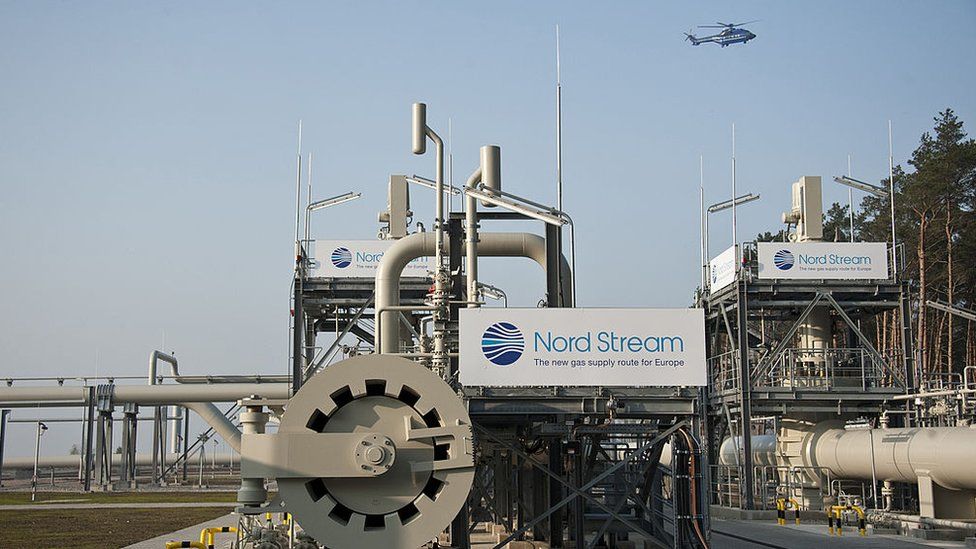
The order signed by Mr Putin means foreign buyers of Russian gas will have to open an account at Gazprom bank and transfer euros or US dollars into it.
Gazprom bank will then convert this into roubles which will then be used to make the payment for gas.
France’s economy minister Bruno Le Maire declined to comment on technical details linked to the latest Russian demands for rouble payment.
Analysts say making nations pay in roubles for gas will support the country’s currency, which fell sharply after the invasion but has begun to recover.
Nathan Piper, head of oil and gas research at Investec, said Mr Putin was attempting to put economic pressure “back on Europe” and that more foreign exchange demand for roubles would likely push up the value of the currency.
“However, long term Russia needs to remain a reliable supplier of gas so it is unclear if they would actually restrict gas supply,” he added.
“That said, even the risk of it is keeping UK/European gas prices at near record highs and six times the 10-year average. This is translating to steep rises in consumers’ energy bills.”

For the Kremlin this is designed to suggest a dramatic escalation in the economic battle between the West and Russia over the invasion of Ukraine.
Vladimir Putin has outlined a pathway for the cutting of gas supplies to Europe if Western customers refuse to pay for supplies in the Russian currency the rouble.
However, the market reaction suggests the details of the mechanism mean that, in practice, European customers will just have to change their currency dealers to Gazprom bank. That bank has already been left unsanctioned, for the purpose of continuity of energy trade.
As a result, gas prices remain very high, but did not today shoot into the stratosphere. There should be a workaround.
As one leading analyst told me, this solution has “saved face” for Putin, who can sound tough on domestic TV. Ultimately, as Russian officials have repeatedly said for decades, Russian supply of energy to the West continued uninterrupted even during the height of the Cold War.
Ultimately, Russia still needs the money for the gas, and still wants to leave the possibility of a market for its main export once a peace deal is signed. However, it is also true to say that the threat of a cut-off has escalated. EU nations have prepared emergency measures to manage demand, and would be more willing to face that now during spring and summer than winter.
Russia’s announcement comes after Moscow appeared to soften its stance on Wednesday over demanding rouble payments, saying they would be introduced gradually.
In preparation for gas supply disruption, Germany and Austria have triggered emergency plans amid a payments stand-off with Russia.
Germany, which gets about half its gas and a third of its oil from Russia, has urged its citizens and companies to reduce consumption in anticipation of possible shortages. Austria, which imports about 40% of its gas from Russia, is tightening its monitoring of the market.
Under an existing gas emergency plan, the “early warning phase”, which both Germany and Austria have begun, is the first of three steps designed to prepare the country for a potential supply shortage. In its final stage, the governments would bring in gas rationing.
Elsewhere, Bulgaria, which gets 90% of its gas via imports from Russian company Gazprom, has opened a tender for underground drilling as part of plans to almost double the country’s gas storage capacity and prepare for any supply disruptions.
While the UK would not be directly impacted by supply disruption, as it imports less than 5% of its gas from Russia, it would be affected by prices rising in the global markets as demand in Europe increases.
The UK government said it was not planning to pay for Russian gas in roubles.




No comments:
Post a Comment
Note: only a member of this blog may post a comment.